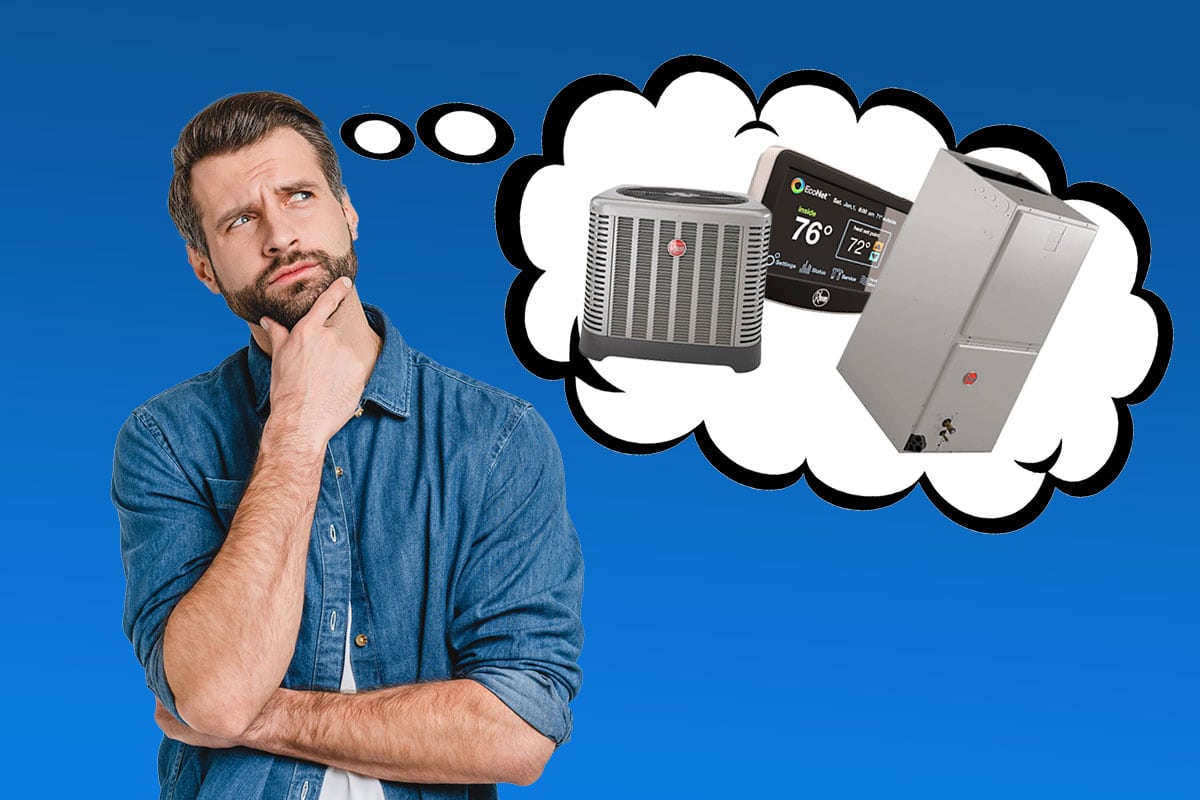How to Select the Right HVAC System: A Comprehensive Guide

Selecting the right HVAC system for your home can be a daunting task. With so many options available, it can be challenging to know where to start. However, choosing the right HVAC system is crucial to maintaining a comfortable living environment and saving money on energy bills. In this article, we’ll discuss how to select the right HVAC system for your home.
Consider Your Home’s Size and Layout
One of the first things to consider when selecting an HVAC system is your home’s size and layout. The size and layout of your home can have a significant impact on the type of system that will work best for you. For example, if you have a large home with multiple levels, you may need a larger system that can accommodate the increased demand. Conversely, if you have a smaller home or a home with an open floor plan, you may be able to get by with a smaller system.
Conduct a Load Calculation
To determine the right size HVAC system for your home, it’s important to conduct a load calculation. A load calculation takes into account your home’s size, layout, and other factors such as insulation, windows, and doors to determine the amount of heating and cooling required to maintain a comfortable living environment. A professional HVAC contractor can conduct a load calculation for you and help you determine the right size system for your home.
Consider Zoned Systems
Another option to consider when selecting an HVAC system is a zoned system. Zoned systems allow you to control the temperature in different areas of your home independently. This can be beneficial if you have areas of your home that require more or less heating or cooling than others. Zoned systems can also help save money on energy bills by allowing you to only heat or cool the areas of your home that are in use.
Choose the Right Type of System
Once you’ve determined the right size system for your home, it’s important to consider the type of system that will work best for you. There are several types of HVAC systems available, including:
Split Systems
Split systems are the most common type of HVAC system. They consist of an outdoor unit that contains the compressor and an indoor unit that contains the evaporator. Split systems are typically used in conjunction with a furnace or air handler to provide heating.
Packaged Systems
Packaged systems are an all-in-one unit that contains both the compressor and the evaporator. They are typically used in homes that don’t have space for an indoor unit.
Ductless Mini-Split Systems
Ductless mini-split systems are similar to split systems, but they don’t require ductwork. They consist of an outdoor unit that contains the compressor and one or more indoor units that contain the evaporator.
Geothermal Systems
Geothermal systems use the earth’s natural heat to provide heating and cooling. They are typically more expensive to install but can save money on energy bills over the long term.
Consider Energy Efficiency
When selecting an HVAC system, it’s important to consider energy efficiency. HVAC systems that are more energy-efficient can save you money on energy bills and reduce your carbon footprint. Look for systems that have high SEER (Seasonal Energy Efficiency Ratio) and AFUE (Annual Fuel Utilization Efficiency) ratings. These ratings indicate how efficient the system is at converting energy into heating or cooling.
Look for Energy Star Certification
Another way to ensure that your HVAC system is energy-efficient is to look for Energy Star certification. Energy Star is a government-backed program that certifies products that meet certain energy efficiency standards. HVAC systems that are Energy Star certified are typically more energy-efficient than those that are not.
Consider Variable Speed Technology
Variable speed technology is another feature to consider when selecting an HVAC system. Variable speed technology allows the system to adjust its output based on the demand for heating or cooling. This can save energy and reduce wear and tear on the system.
Choose the Right HVAC Contractor
Selecting the right HVAC contractor is just as important as selecting the right HVAC system. As a matter of fact, it may actually be more important, because most systems are built by a handful of manufacturers, but all that goes out the window if the system isn’t installed properly. A reputable and experienced HVAC contractor can help you select the right system for your home and ensure that it is installed properly. Here are some things to consider when selecting an HVAC contractor:
Experience and Credentials
Look for an HVAC contractor with experience and credentials. A reputable contractor should be licensed, insured, and certified by organizations like NATE (North American Technician Excellence).
References and Reviews
Ask for references and read online reviews to get an idea of the contractor’s reputation. A reputable contractor should be willing to provide references and have positive reviews from satisfied customers. Follow us on Google to see our almost perfect Five Star Rating.
Warranty and Maintenance Plans
Ask about the contractor’s warranty and maintenance plans. A reputable contractor should offer a warranty on their work and provide maintenance plans to keep your system running smoothly.
Conclusion
Selecting the right HVAC system for your home is crucial to maintaining a comfortable living environment and saving money on energy bills. By considering your home’s size and layout, choosing the right type of system, considering energy efficiency, and selecting the right HVAC contractor, you can ensure that you get the best system for your needs. Contact a reputable and experienced HVAC contractor today to get started on selecting the right HVAC system for your home.
Schedule Service for Your Home’s HVAC System
To Schedule a Service appointment, click the “SCHEDULE NOW” button at top of the page, or call (330)-499-3633 to speak to one our friendly Comfort Team members.

